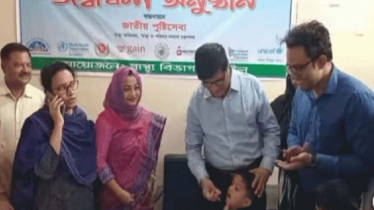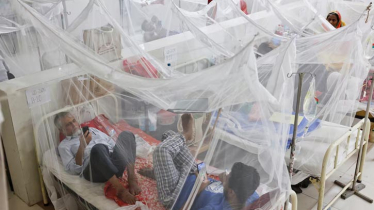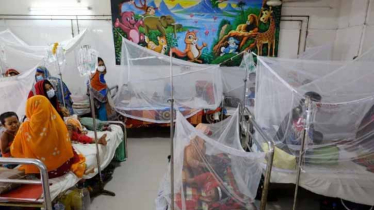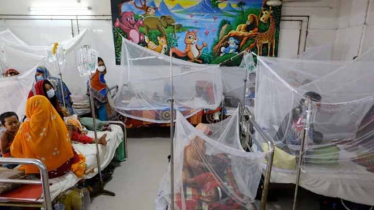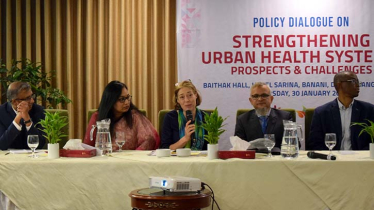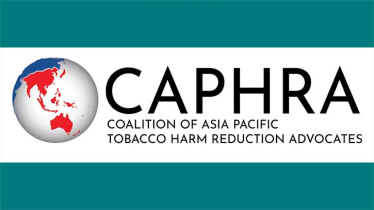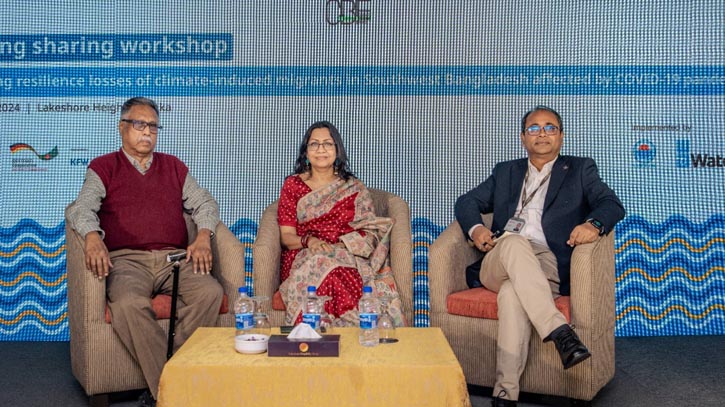
Photo: Collected
WaterAid Bangladesh on Thursday organised a national-level workshop titled 'Addressing resilience losses of climate-induced migrants in Southwest Bangladesh affected by COVID-19 pandemic', for sharing the learnings from a project to ensure its replication at governmental and other levels.
The workshop was part of the project which aims to address the socio-economic vulnerability and exclusion of the climate-induced migrants, which has been further compounded by COVID-19, living in urban slums in Khulna and Satkhira. It was held at Lakeshore Heights, Dhaka.
The event united leading voices in the water, sanitation, and hygiene (WASH) and climate change sector to showcase the overall project, including its interventions, learnings and prospects for replication.
This involves providing a comprehensive overview of what the project aimed to achieve, the key deliverables that were produced, the results and how the work can be carried forward.
The learning-sharing workshop created a unique platform to connect relevant stakeholders catering to climate-induced migrants, allowing them to share their experiences, insights, and challenges.
It aimed to highlight the project's contributions in addressing the plights of climate migrants clustered on the urban fringe, highly exposed and vulnerable to floods and waterlogged soil. As the project nears its end, ICDDR,B has conducted an endline evaluation to portray empirical evidence and learning from the field.
Programme Lead-Universal Access Babul Bala's presentation on the project's rationale, visual representation of interventions, challenges and learnings,after ICDDR,B shared graphical representations, statistics, comparison with baseline evaluation and recommendations that they have accumulated from the field.
WaterAid Bangladesh adopts a bottom-up approach to zoom in on the real-life accounts of beneficiaries and engaging relevant authority to help foster institutional ownership in order to implement this project.
Two beneficiaries- Rupali Begum (Shastho Surokkha Station and Grant Support recipient) and Jannatul Ferdous Irani (IGA Training and Material support) shared their back stories, current living standards and how they experience financial freedom and empowerment while Salim Sarower, Assistant Engineer-Satkhira Municipality, emphasized on misuse of water in daily activities. Parvez Mollah, Assistant Director-Department of Youth Development, expressed his willingness to support the youth in rural areas to deter migration to urban areas.
The chief guest of the workshop, Professor Emeritus Dr Ainun Nishat, Member, Advisory Committee of Climate Bridge Fund (ACCF), emphasised forgoing callousness of COVID-19 vaccination dosage, installation of Pond Sand Filters (PSF) and the importance of Rainwater Harvesting in high salinity regions.
He stated, "Just like the heatwave we experienced this year, there can also be cold waves that we could anticipate. This is climate change, and its unpredictability, due to the lack of patterns, makes it even more challenging. To support people's livelihoods, we must focus on addressing these uncertainties."
Special guest Dr Md Golam Rabbani, Head of Secretariat, CBF, BRAC, appreciated the triangulation modality of the workshop and described it as "first-hand example of a multi-sectoral approach".
Country Director of WaterAid Bangladesh Hasin Jahan warranted the need to weigh in on their failures and stated, "We often avoid failures, but it is important to reflect on our work and identify them, so we have something to improve on in the future. My key takeaway from this project is how we can scale up our learning in behaviour change more effectively. While resources are limited, we must allocate them wisely to ensure we prioritise WASH as an integral part of climate funds."
The event concluded with a Vote of Thanks from Nabolok Parishad's Executive Director, Kazi Rajeeb Iqbal.
Messenger/JRTarek

